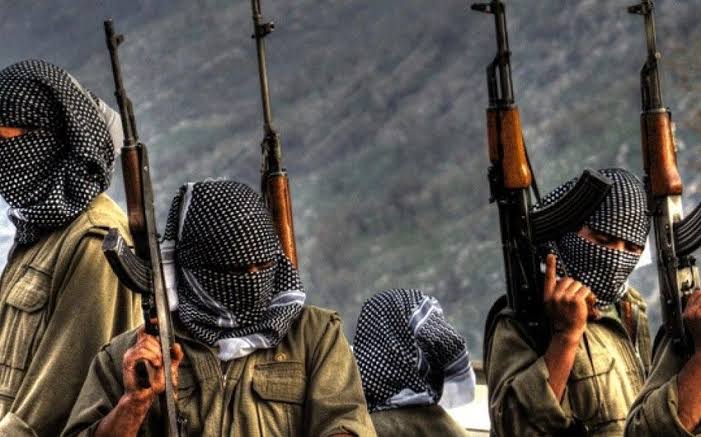The world must prepare itself for an imminent surge in terrorist activities over the coming years, a resurgence that could tragically claim the lives of many innocent people. Terrorists are, at their core, cowards who exploit violence against ordinary civilians to achieve political or ideological goals. Rather than engaging in direct confrontations, they target defenseless populations, aiming to instill fear and create mass panic. Modern terrorism has evolved significantly from earlier forms, adopting new strategies and leveraging fear as a tool to manipulate governments and influence decision-makers. By focusing attacks on densely populated areas such as airports, shopping malls, transportation systems, tourist hotspots and entertainment venues, terrorists seek to amplify insecurity and erode public confidence in safety measures. Their ultimate aim is not only to cause physical destruction but also psychological warfare by shaking the foundations of social stability and forcing nations to change policies under duress.
For terrorist groups to gain traction and recruit followers, they require a compelling cause. Unfortunately, the ongoing conflict in the Middle East provides a fertile ground for their narratives, offering a potent mix of political, religious and ideological grievances. The prolonged war has deepened divisions, particularly between the Muslims, Christians and Jews, creating an "us versus them" mentality that extremist groups exploit to radicalize vulnerable individuals. These fractures in the society could lead to the birth of new terrorist cells bent on using violence to further their agendas.
Terrorist ideology often extends beyond the immediate perpetrators of violence, targeting those associated with their perceived enemies. A stark reminder of this is the 9/11 attacks, where the primary adversary of the terrorists was the United States, yet countries like Kenya also suffered tragic losses due to indirect associations with America. Innocent Kenyans, who had no direct involvement in the conflict, became collateral damage, highlighting the indiscriminate nature of terrorist strategies. This pattern underscores the dangerous ripple effect of terrorism, where no nation is truly safe from its reach.
One of the most alarming factors that will fuel these terrorist attacks is the ongoing suffering of younger generations growing up in conflict zones in Gaza. These children, raised amid violence, destruction and death, risk becoming desensitized to human suffering. Their experiences breed anger, resentment and a thirst for vengeance. For them, violence will not just be a tool but a form of expression, a way to strike back against those they hold responsible for their pain. With no viable prospects for peace or stability, these young individuals will be easily swayed by extremist ideologies, making them dangerous recruits for these future terrorist movements.
The volatile political environment in the Middle East also provides an ideal breeding ground for these terrorist cells. As conflicts persist and international intervention remains inconsistent, terrorist groups will find opportunities to strengthen their networks, recruit more members and plan more attacks. The longer the instability continues, the more difficult it will become to contain the growth of these organizations. What begins as localized violence will quickly spiral into coordinated, global assaults that will threaten the safety of nations worldwide.
To prevent this grim future, world leaders must address the root causes of conflict in Gaza and other hotspots. Negotiations should focus on finding lasting solutions that respect the rights and autonomy of the affected populations. Israel and Lebanon, along with other stakeholders, must commit to peace talks and compromise. If the world truly values freedom and human rights, it must allow the people of Gaza to determine their own fate without external interference. Boundaries drawn by colonial powers for their own benefit continue to sow discord and it is time for humanity to rise above these artificial divisions. The International Criminal Court should also carry out its duties impartially and not appear biased by prosecuting only individuals from Africa, while many war criminals and mass murderers from America and Europe continue to walk free as if they own the world.
We must recognize that this world belongs to all of us. We must all share it equally because our time here is limited. Instead of wasting it in endless cycles of violence, we should focus on building a world where coexistence thrives and cooperation are prioritized. The ongoing bloodshed only serves the interests of those who profit from war, such as arms dealers and political elites who remain untouched by the conflicts they fuel. Meanwhile, ordinary people, including innocent men, women and children, are the ones who pay the ultimate price.
The colonial powers that once drew borders and sowed division now watch from their luxurious towers, safe and detached from the chaos they left behind. Their legacy continues to haunt us, as nations fight battles that were never truly theirs. If humanity hopes to break free from this destructive pattern, we must let go of hatred, end senseless wars, and prioritize empathy over greed and domination.
The future does not have to be defined by terror and division. Instead, it can be shaped by unity and understanding. But this vision requires a collective effort, one that challenges the status quo and demands accountability from those in power. Only by addressing the grievances fueling extremism can we hope to dismantle the machinery of terrorism and build a safer, more just world for future generations.
